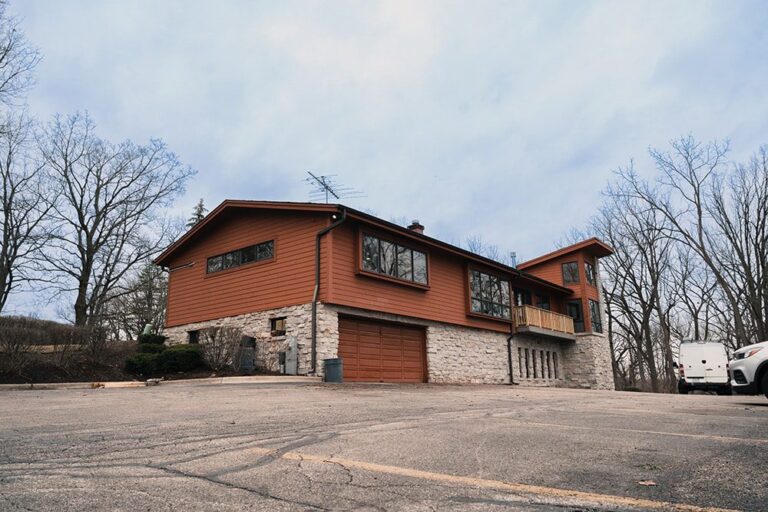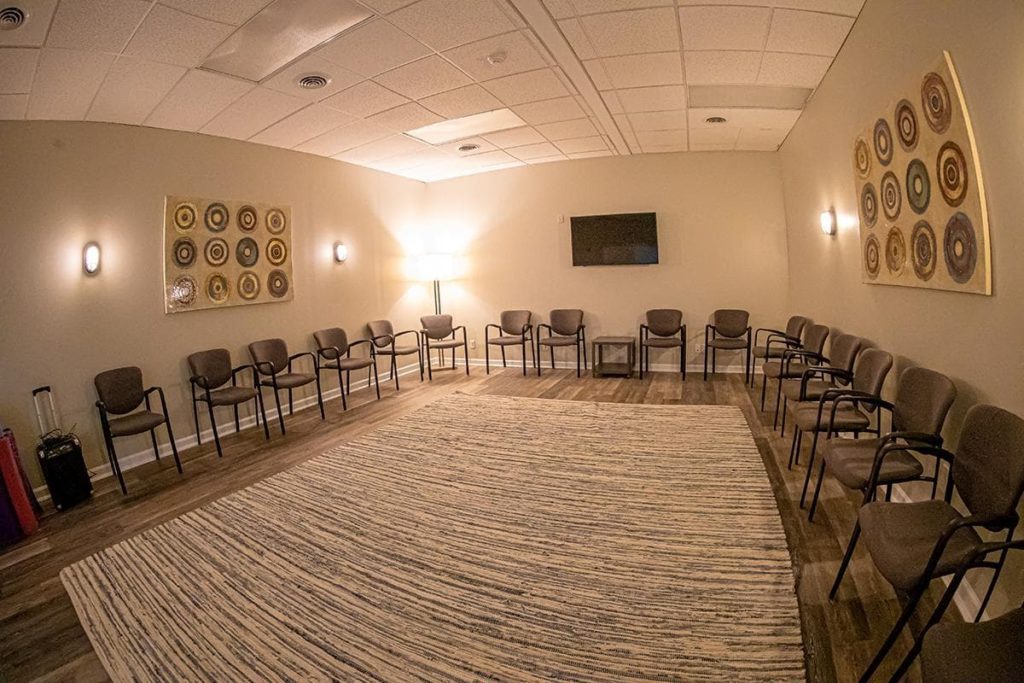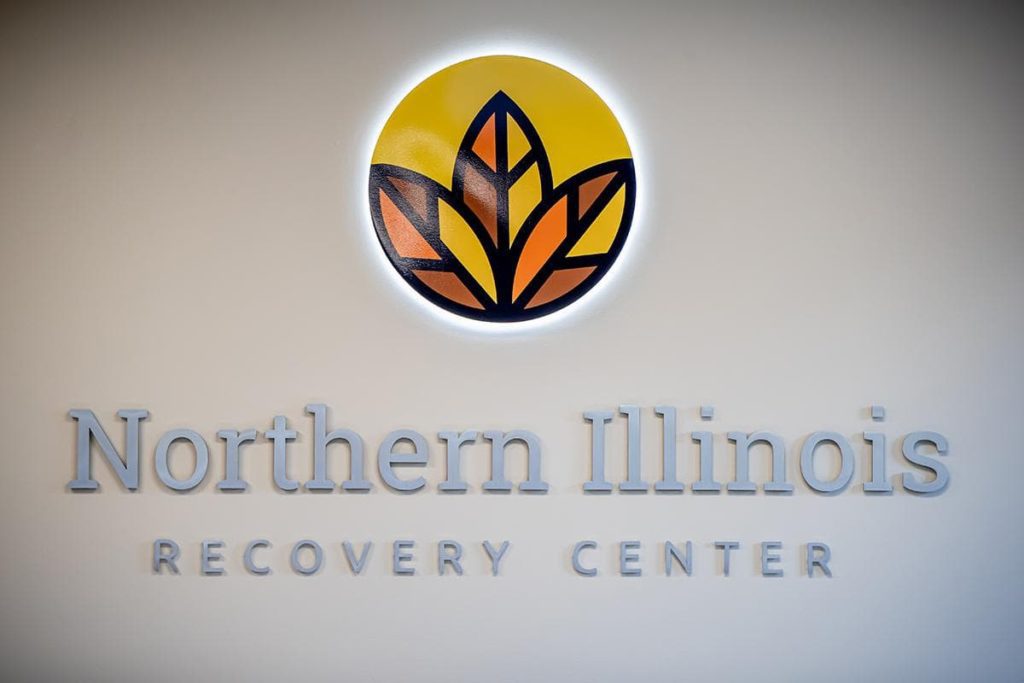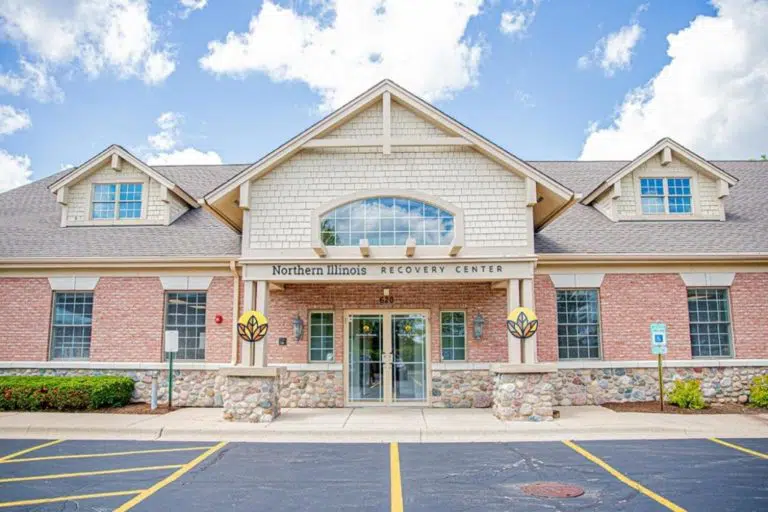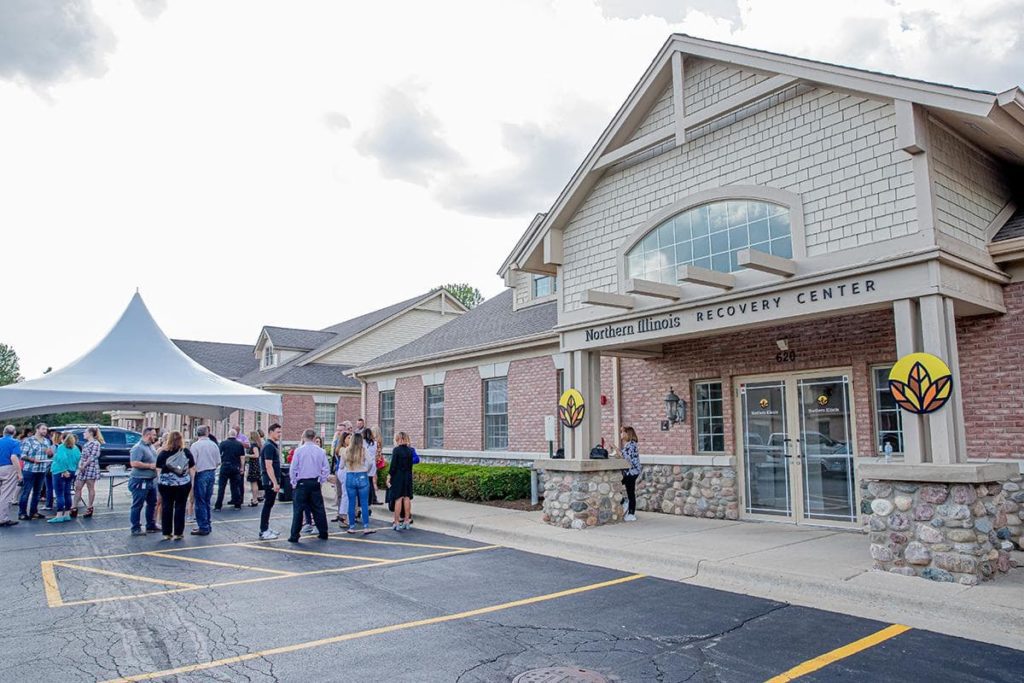Northern Illinois Recovery Center offers a drug and alcohol detox program to help individuals with the dangerous withdrawal symptoms associated with quitting substance abuse. Our medically assisted detox program helps ensure safety while managing symptoms.
Detox is an experience that is unique to everyone. For this reason, it is not advisable to attempt drug and alcohol detox at home. Professional drug detox centers monitor patients 24/7 to make ensure comfort and safety. Medical detox centers will administer medication-assisted treatment to offset the more serious withdrawal symptoms.
The first stage of recovery is entering detox for most people struggling with a substance use disorder. It can be a very challenging time, especially for those who have had a long-term addiction.

What are Common Withdrawal Symptoms?
- Anxiety
- Depression
- Tremors
- Nausea
- Seizures
- Sleeplessness
- Muscle aches
- Digestive problems
- Difficulty thinking
- Hallucinations
These symptoms can range from slight discomfort and jitteriness to hallucinations, sweating, moodiness, and severe nausea. Regardless of how severe your symptoms are, our drug detox center in Illinois will get you through these uncomfortable and dangerous symptoms.
Can I Detox From Drugs at Home?
What is Medication-Assisted Detox?
You don’t have to feel alone during detox. You can be surrounded by a caring addiction treatment staff who understand your struggle and provide the right treatment to make life as comfortable as possible as your body rids itself of toxic chemicals. Once you get through detox, you will feel much better and ready to move on with your treatment and recovery.
Substance Detox in Northern Illinois Recovery
Detox for Benzos
Benzos are a prescription drug that is extremely addictive. Those who use benzos, whether medically or recreationally…
Cocaine Detox
According to the National Institute on Drug Abuse (NIDA), the drug cocaine is a powerful nervous system stimulant.
Heroin Detox
Heroin is a highly addictive substance of abuse. It is considered part of the opioid family and, as a result, has a high rate of addiction.
Methadone Detox
Methadone is a synthetic opioid medication that may be prescribed for moderate to severe pain management…
Prescription Drug Detox
In the U.S., more than 130 million people take prescription drugs. Over 16 million people misuse their medications…
MAT Detox
Medication-assisted treatment (MAT treatment) refers to the combination of behavioral therapy and medication during recovery.
How Long Does Drug and Alcohol Detox Last?
- Family history of addiction
- The substance an individual was using
- The length of time the addiction has lasted
- If the person has been to rehab previously
- Underlying medical or mental health conditions
- How much of the substance the person uses at a time
- The way the individual was using the substance
While going through the intake process, you will be able to speak with a detox specialist to gain better insight into what detoxification will be like for you. Since drug detox is a unique process for each person it is difficult to speculate what their experience will be. However, the goal is always to make sure anyone attending our drug detox center in Illinois is safe and comfortable.
Facility Tour
Inpatient Campus
![]() 16 Bedrooms
16 Bedrooms
![]() Only 41 miles from O’Hare Airport
Only 41 miles from O’Hare Airport
![]() Luxury Amenities
Luxury Amenities
![]() See more images
See more images







Outpatient Campus
Northern Illinois Recovery Center offers a wide range of treatment options in our state-of-the-art and unique facility.
![]() 16 Bedrooms
16 Bedrooms
![]() Only 41 miles from O’Hare Airport
Only 41 miles from O’Hare Airport
![]() Luxury Amenities
Luxury Amenities
![]() See more images
See more images
The Alcohol and Drug Detox Process

Evaluation
Our professional medical staff will review the patient’s medical history, mental health, and history of addiciton. Doctors will run several different blood tests to determine the amount of drugs or alcohol present in the body. After a comprehensive review, the medical team will decide on what medications will be best suited. They will also develop a recommended long-term treatment plan.

Stabilization
After evaluation, the next step is to stabilize the patient with medications and therapy. The main goal in this step is to prevent any dangerous withdrawal symptoms from causing harm. In order to reduce the chance for any complications, doctors will prescribe addiction treatment medications and monitor their progress.

Preparation for Entering Addiction Treatment
The last step in drug detox is preparing the patient for entry into an accredited addiction treatment program. Addiction treatment specialists will discuss what options are available and make recommendations based on their initial evaluation and process of detox. Addiction treatment programs offer the best chance of long-term recovery from substance abuse.
What Happens on the Other Side of Detox?
We offer several different types of addiction treatment programs to help you achieve this goal, such as:
Our mission is to help you get clean and stay clean by providing all the tools you need for your recovery. We want to help you get back to living a full and healthy life, surrounded by friends and family. This all starts at a proper drug and alcohol detox center, which we can refer you to. There, you can get the support and therapy you need in a comfortable and relaxed setting.
Our dual diagnosis treatment program is effective for those struggling with both a substance use disorder and a mental health issue. Across all our addiction treatment programs, individuals can take advantage of numerous forms of therapy.
We will sit down with you and discuss your specific needs. You can tell us your story, talk about your addiction, and share your goals. We can work out a treatment plan that brings you from addiction to recovery. This includes your initial detox, treatment program, and then long-term treatment to keep off of drugs or alcohol for good.
Testimonials
Medication-Assisted Treatment in Addiction Treatment
Discover What Northern Illinois Recovery Center Has to Offer
Regardless of what addiction you are struggling with, Northern Illinois Recovery Center provides complete recovery for your substance abuse. We treat all types of addictions, including alcohol, heroin, opioids & opiates, meth, prescription drugs, or other substances. You don’t have to live in the shadow of addiction any longer. To find out more about the best drug and alcohol detox center for you, call Northern Illinois Recovery center today and verify your insurance with us. We can help you break the cycle of addiction and reclaim your life once again.







